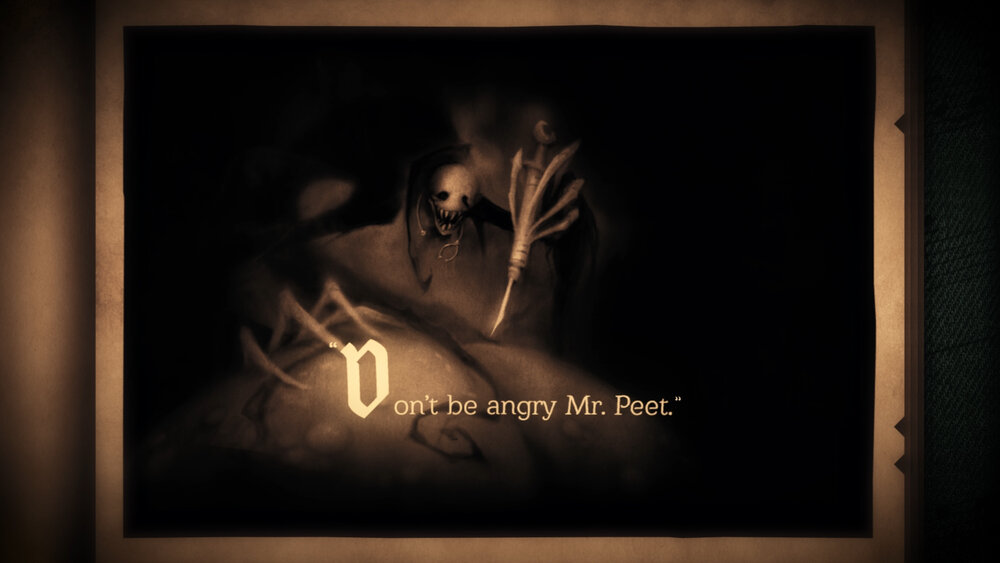Neversong is a short, sharp metroidvania-lite concerning a young lad called Peet looking for his abducted girlfriend Wren. Someone took Wren and Peet fell into a coma. When he came to, all the grownups had vanished and the kids were left to run riot. The kids now endlessly rag on Peet for being a coward and his inability to protect Wren. Which is probably fair, to be honest. The spineless little get.
I have a problem with games like Neversong, which is entirely of my own making and not the game’s, and it’s that I’m not very good with nuance or allegory. I’ve probably mentioned before that when it comes to games I like to brute force my way through them. Punch demons, get loot, repeat. Foot down, slide round corner, repeat. Smash wall etc etc you get the point. It’s the same when it comes to stories. I don’t really see when stories are using metaphors or parallels and it seems with games like Neversong the game mechanics exist to tell the story.

Which is absolutely fine, obviously. There is a vast subset genre in gaming which is basically ‘play for the story’. Most walking simulators fall under this umbrella and I think they very much have their place, but they also aren’t for everyone.
I was going to try to make this review into more of a case for the eternal “Are games art?” conversation because if you took a game like Neversong purely on the merit of its gameplay you’d plonk it squarely in the lower-middle of whatever arbitrary metric you use to rate games. It’s very short, the unlockable skills are doled out at set points, there’s not much in the way of replayability albeit with some areas you can only access once you’ve completed the story, and the graphics feel… not amateurish, that’s too derogatory, but there’s a simplicity to them that’s both charming and slightly disappointing. The soundtrack is pretty ace, mind.
But then it’s not a game that’s about the gameplay. It’s a game that’s about the story, and it’s a story that’s about loss, and forgiveness, and hope, and the fleetingness of youth. It’s frequently creepy and has a tangible air of melancholy about it which is quite affecting. And this is, for me, where the whole “games as art” thing lies; it lies in a game trying to be more than a series of enjoyable mechanics tied together to make an experience something greater than simply enjoyable platforming or combat or the grind for meaningless number acquisition.
You could get very deep into the weeds with thinking like this. About how games can give you food for thought, or provoke emotions and synaptic responses grander than “hehehe man get punched and fall over OOOOOOH TREASURE” or have some kind of resonance with personal experience outside of your hobby.
But there’s also the case that you can end up seeing things which aren’t actually present; reading something into nothing, drawing upon experiences and imprinting them on what you’re seeing, hearing and doing in the game. Or completely failing to do so.

And then there’s the notion that can a game be art when it’s not really got anything to say? Can a triple A, multi-million dollar monstrosity from the world’s biggest developers be considered as art just as much as a game made by a tiny team about the loss of a child? Maybe. It’s a long conversation, and one that’s usually held in a pub when you’re drunk, but I think smaller games like this make a better case for it than larger ones. Which sounds like piss poor justification for a game that’s slight on mechanics and run time but I honestly think if you’re going to play a game like Neversong you’re not playing it solely for the game.
I’m (maybe) over playing my stupidity with regard to understanding the story, I’m just not entirely sure what the message was supposed to be and I can’t really tell if that is because the story is maybe too subtle or just not well written or I’m simply incapable of seeing that nuance. To me it read as a story that held all the elements I mentioned further up the page (loss, forgiveness, hope, youth) but there’s also something on being a grown up (or maybe just growing up) and standing up to some great unknowable challenge as well. It’s just not very clear to me. Again that may be on me more than the game, but I do feel like it’s not conveyed as clearly and as cleverly as it’d like.
Neversong is a fine game if you like all the things that it is; it’s a light platform action game with a heavy emphasis on story and atmosphere. But if you’re looking for something with more meat on the bones, you’re best off investing your £12 or so elsewhere.

